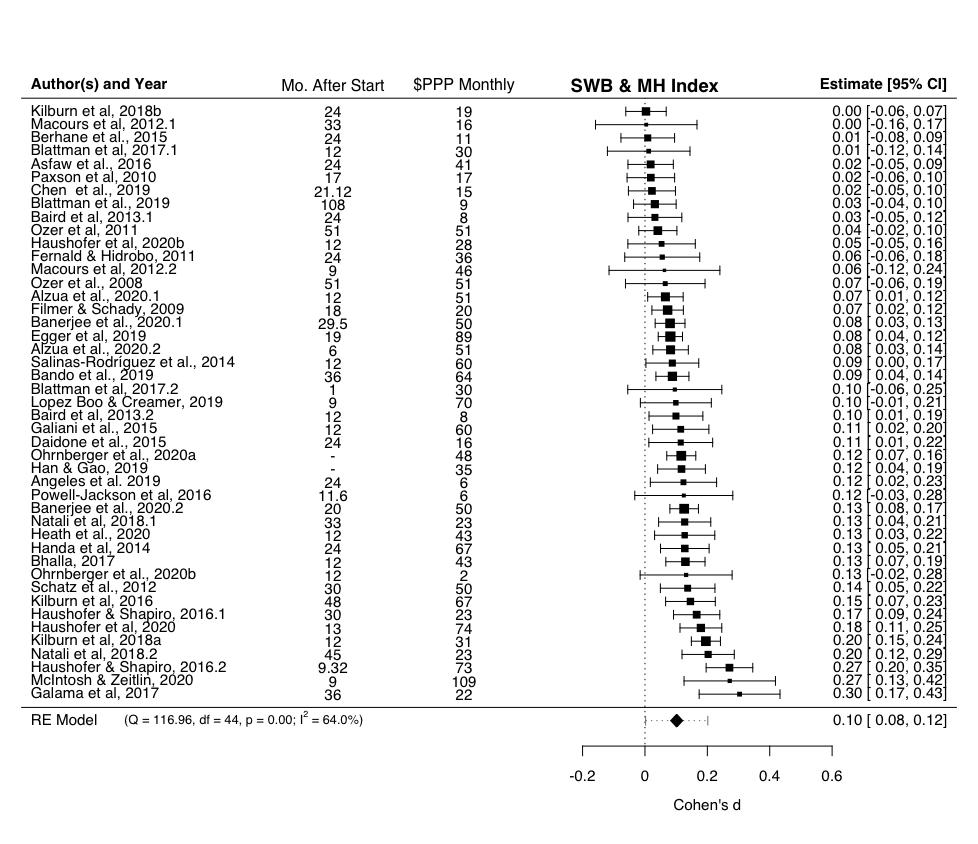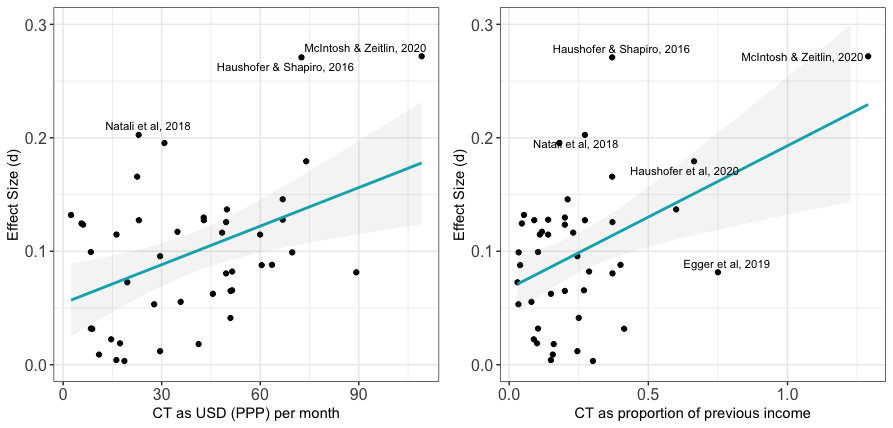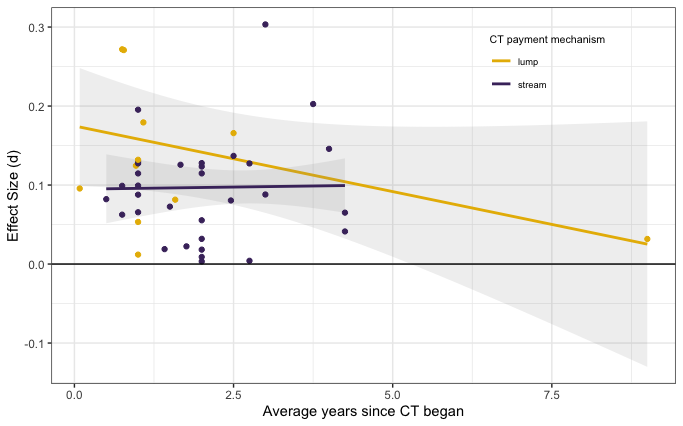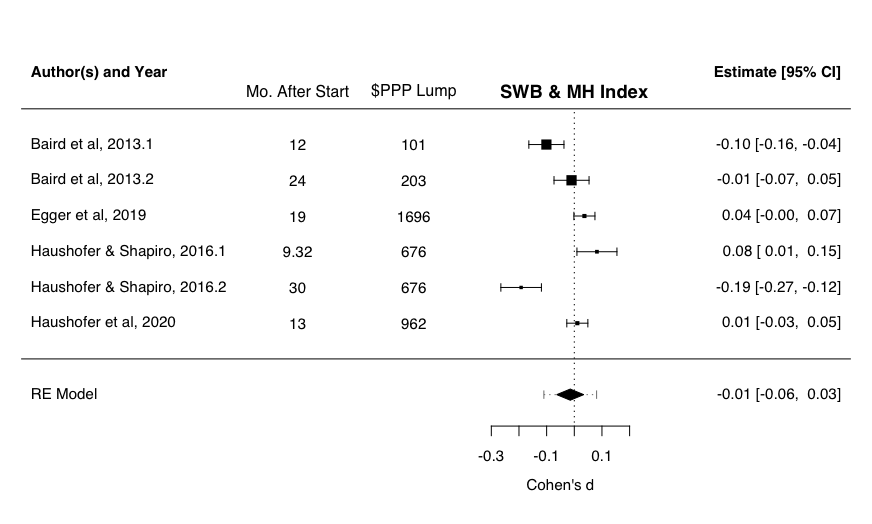Does money make people happy? My new working paper for @HappierLivesIns with @caspar_kaiser @AMBachMortensen reviews all the studies looking at cash transfers to answer this in LMICs. #EconTwitter #cashtransfers
https://www.happierlivesinstitute.org/uploads/1/0/9/9/109970865/cash_transfer_meta-analysis_1.39.pdf
https://www.happierlivesinstitute.org/uploads/1/0/9/9/109970865/cash_transfer_meta-analysis_1.39.pdf
Before we go further: why cash transfers (CTs)? The effect of money on well-being is an old question, but little causal evidence until recently! Plus CTs make a useful comparison to other interventions. We review the impact of 38 CT studies on measures of subjective well-being.
The average effect of CTs is 0.10 standard deviations (conventionally small) in our index of subjective well-being (SWB) on average. This is after an avg. 2 years, so the effect endures. Study characteristics like follow-up delay and CT size explain some variance in effects.
Unsurprisingly, the size of a CT matters! Both for absolute (the dollar value) and relative size (the proportion of previous consumption). Note: Plots show simple correlations, not regression lines estimated by full model.
We also found *some* evidence that there is a decay through time, where the average effect would reach zero after ~7 years have passed since the transfer started (assuming linear decay w/ time). More data of long-run effects would improve this estimate!
We find cash transfers have a 40% greater effect on life satisfaction than depression (0.04 standard deviations more).
Also unconditional CTs have a similarly larger effect (~0.04 SDs) than those with conditions! Maybe maintaining conditions adds pressure / stress?
Would you feel worse if your neighbours got richer? Perhaps surprisingly we do not find evidence of this sort of negative ‘spillover’ effect on non-recipients in other households in the same community.
We estimate the total impact on well-being of giving a $1,000 cash transfer to someone in global poverty using Well-being Adjusted Life Years (WELLBYs). We estimate that the total effect over time is 0.87 WELLBYs.
For reference, we take 1 WELLBY to be equivalent to increasing one person’s SWB, measured on a 0-10 scale, by 1 point for 1 year. E.g. going from 7 to 8/10.
Are cash transfers cost effective? We don’t know— yet! There are no (known) reviews of interventions targeting those in poverty in terms of their total impact on SWB. So no apples to apples comparison. Hope to change that soon. Stay tuned!
Caveats: the evidence is thin on spillovers to other members of the community, and in the long run (greater than five years). There is no data on the effect to other members of the recipient’s household. Picture might change if we knew more about these!
For lots of people well-being is what ultimately matters. SWB may measure that. We’d like to see more work looking at the total impact of an event on SWB so we can work out how best to improve people’s lives.
Thanks to @jhaushofer @matthewridley93 @TinaKhanna24 for feedback, @HappierLivesIns funders, @OxWellResearch for hosting me earlier this year and @MichaelDPlant and @C_Don7 for excellent guidance.

 Read on Twitter
Read on Twitter







